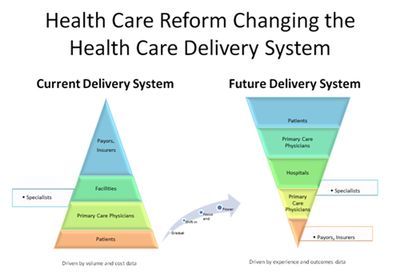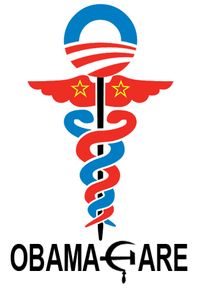Think of this as Volume 17, Number 33 of the newsletter I have written weekly since March, 1997. Enjoy.

way to explain health reform to people for years, without much
success.
Turns out their answer lay in the words
of a man who has been dead for over 100 years.
In his “Autobiography,” the first part of which was finally published last year, Mark Twain wrote this:
“Consider the
wisdom and righteousness of the old-time custom – the paying of the
physician by the year. Consider what a safeguard it was, for both the
physician's livelihood and self-respect, and the family's health. The
physician had a regular and assured income, and that was an advantage
to him; the family were safe from his invasions when nothing was the
matter, and goodness knows that was an advantage to the family.”

You pay for each patient every year. You separate the risk of serious
illness from the regular maintenance everyone needs, regardless of
their age. You make sure that maintenance is done, which reduces the
risk of something serious happening. (Image from Health Reform Magazine.)
The group that handles this in our time
is called an Accountable Care Organization.
ACOs are common in the Medicare market, where they share in the
savings from keeping people out of the hospital. The ACO model works
– insurers have been buying ACOs with both hands over the last year
because it is profitable. When that model is brought into the rest of
the market, the lower-risk population under age 65, it should work
even better.
The problem with the U.S. health care
market comes down to incentives, and doctors have the wrong ones.
They have an incentive, as Twain writes, to see you as often as
possible, so they can bill you for as many services as they can.
Twain continues:
“What is the
common, the universal, custom of the physician with a limited
practice? It is this: to keep on coming and coming, long after the
patient has ceased to need him – and charging for every visit.
Almost as a rule – I might fairly leave the “almost” out –
you are driven to the unpleasant compulsion of discharging him, in
order to get rid of him. As a consequence, you dread to call him
again, and you put it off for as long as you can without peril.”

inherent in American medicine, and it's over a century old. But the
size of this conflict rises when, as Atul Gawande wrote in The New
Yorker a few years ago , doctors have financial interests in the clinics, in the imaging
centers, and in the hospitals they work for.
Once this happens they're in precisely
the position as Twain's doctor, only they're also making money from
others' work. All their incentives lie in doing more tests, in
scheduling more visits, in prescribing more drugs, in doing more
procedures, whether or not they're medically necessary.
An ACO uses more than forbearance to
make its money. It uses data. It can tell, from basic medical tests,
whether you have or are at risk of contracting a chronic condition
like diabetes or heart problems, conditions that represent 75% of all
health care spending. We know obesity can cause these conditions, we have an obesity
epidemic, and the only way to address that epidemic is with
preventive care.
I know this works. My father had his
first heart attack at age 47. I'm now 58. But at age 45 I started
taking care of my heart. I started taking statins and hypertension
drugs that didn't exist when my dad was that age. I began a regular
exercise program. I am still waiting for that heart attack. And I
haven't been inside a hospital this whole century.

own. The Society for Human Resource Management estimated that the
corporate wellness market was worth $14 billion in 2010, even though most companies then didn't know how to measure the
return on investment from that spending, which means most companies
still weren't doing it.
By merging the income of insurance with
the outgo of care, as groups like Kaiser have done for years, and by
being accountable for keeping people out of hospitals, as wellness
management does, you cut total health care costs. But all this
requires a business model. The Affordable Care Act is the business
model.
So where is the opposition to Obamacare
coming from? Doctors. Doctors who charge per-visit, who charge for
each procedure, who have an incentive to go outside best practices,
who keep “coming and coming,” are behind the opposition to health
reform, along with ideologues who see any government involvement in
any market as being anti-capitalism and anti-growth. Because, freedom.
Opponents to the law have been very
transparent about their goal all along. One of them, Betsy McCaughey (above),
wrote this in 2009:
The
health-care industry is the largest employer in the U.S. It produces
almost 17 percent of the nation’s gross domestic product. Yet the
bill treats health care the way European governments do: as a cost
problem instead of a growth industry.
We can't afford for health care to be a
growth industry. Not on a per-capita basis we can't. Our trading
partners pay half what we do for health care, they cover everyone,
and they have longer life spans. Obamacare isn't perfect, but it at
least aligns incentives in the right direction, the direction Mark
Twain prescribed back over a century ago.











Well, if you like your health plan then keep it..
Well, if you like your health plan then keep it..